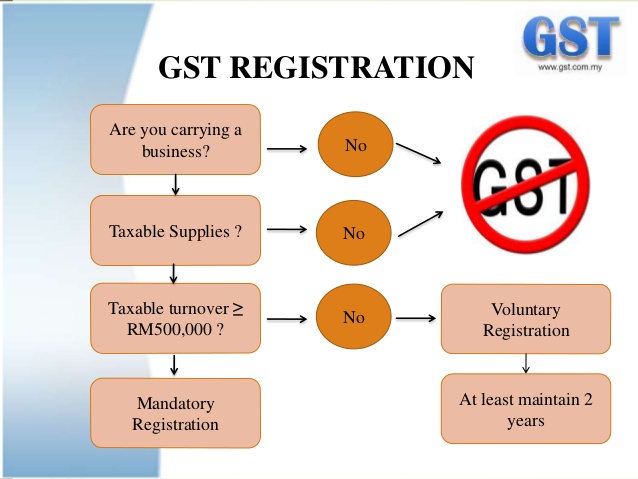Leading Rated Best GST Registration Services in Singapore for 2024
Leading Rated Best GST Registration Services in Singapore for 2024
Blog Article
From Begin to End Up: The Ultimate Roadmap to GST Registration for Companies Seeking Financial Security
Navigating the complexities of Goods and Provider Tax Obligation (GST) enrollment is an important action for organizations striving for financial security. From recognizing the fundamental principles of GST to adhering to post-registration standards, the process can appear intimidating in the beginning look. Nevertheless, damaging down the roadmap right into workable actions can simplify the registration journey for organizations wanting to improve their economic standing. Allow's explore the necessary parts that compose this utmost roadmap and uncover just how each stage adds to laying a strong structure for economic success.
Understanding GST Fundamentals
Delving right into the fundamental principles of Product and Solutions Tax Obligation (GST) is necessary for gaining a detailed understanding of its ramifications on companies and the economic climate. Input Tax Obligation Credit Rating (ITC) is a substantial attribute of GST, allowing businesses to assert credit history for tax obligations paid on inputs, lowering the overall tax obligation burden. Comprehending the fundamentals of GST is vital for organizations to conform with tax obligation policies, manage their finances effectively, and contribute to the country's economic growth by getting involved in a clear tax obligation system.
Qualification Standards for Enrollment
To register for GST, companies should meet specific qualification criteria established by the government. The main eligibility demand is that any kind of organization entailed in the supply of goods or services with an annual aggregate turn over over the threshold limitation set by the authorities must register for GST. Since the existing laws, the threshold limit for GST registration is a yearly accumulation turnover of 40 lakhs for businesses running within a state, besides unique classification states where the limitation is 20 lakhs. Furthermore, specific businesses are called for to sign up for GST irrespective of their turnover, such as interstate vendors, informal taxed individuals, and businesses accountable to pay tax under the reverse charge system. It is vital for businesses to thoroughly evaluate their turnover and transaction types to identify their GST enrollment commitments accurately. Failing to sign up for GST when eligible can bring about fines and lawful repercussions, making it necessary for services to follow the specified eligibility criteria.
Papers Needed for Registration
Having met the qualification criteria for GST registration, companies need to now guarantee they have the requisite records in location to proceed with the enrollment process efficiently. The records needed for GST enrollment normally include proof of organization constitution, such as collaboration act, enrollment certification, or incorporation certificate for various kinds of organizations. Additionally, companies need to supply files developing the primary workplace, such as a rental agreement or electrical energy expense. Frying pan card of the organization, as well as the identity and address evidence of promoters/partners/directors, are essential for verification purposes. Checking account statements, together with canceled cheques or a copy of the financial institution passbook, are called for to validate the monetary details supplied during registration. Companies need to have digital trademarks all set for the licensed signatory. Making sure all these documents are arranged and easily available will quicken the GST enrollment procedure, enabling services to abide by tax laws flawlessly.
Step-by-Step Registration Refine
Beginning the GST enrollment process involves a series of structured actions to ensure a seamless and compliant enrollment for organizations. The primary step is to see the GST site and fill out the registration type with precise information of business entity. Following this, the candidate gets navigate to this website a Short-lived Referral Number (TRN) which is utilized to return to the application process if it's not finished in one go.
Following, all required documents according to the list supplied by the GST portal demand to be posted. These records commonly consist of evidence of service address, registration and identification evidence of marketers, economic declarations, and service entity's frying pan card.

Post-Registration Compliance Guidelines

Conclusion
In conclusion, organizations seeking financial security must comprehend the fundamentals of GST, fulfill eligibility criteria, gather needed files, adhere to the detailed enrollment procedure, and follow post-registration standards - Best GST registration services in Singapore. my latest blog post By adhering to these actions, businesses can make sure conformity with tax regulations and maintain financial stability in the future
Additionally, specific services are needed to sign up for GST regardless of their turn over, such as interstate distributors, informal taxed persons, and organizations liable to pay tax obligation under the reverse charge mechanism.Having actually satisfied the eligibility criteria for GST registration, companies have to now ensure they have the requisite papers in location to proceed with the enrollment process successfully. The files required for GST enrollment normally consist of proof of company constitution, such as partnership act, registration certification, or consolidation certification for various kinds of businesses. Furthermore, businesses require to offer documents establishing the principal area of business, such as a rental arrangement or electrical energy costs.Commencing the GST registration process entails a series of structured steps to make certain a compliant and discover here smooth enrollment for organizations.
Report this page